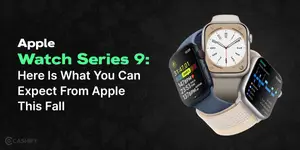What is Edge Computing technology? This is perhaps the most confusing term of modern computing. To be fair, there was computation computing, cloud computing, quantum computing and now a new phenomena edge computing. Let’s be honest that it is too much to comprehend. But moving on, we’ll try to simplify it. I promise…
Also read: ESPN Plus: Is It Worth It, Pricing, What It Includes, And More!
What is Edge Computing Technology?
In an article published by The Verge it is mentioned that Edge Computing is nothing but a buzzword. This looks interesting but even interesting is a non-word. #CaptainFantastic
Jokes apart, Edge computing technology is definitely a generic term something like quantum, cloud or IoT. However, the basic meaning of this computing technology is as simple as you can imagine. So here is what it is, Edge computing is a distributed information technology architecture, which talks about bringing computational and data storage closer to each other so it can improve latency and utilise bandwidth. Too much Technical, I know!
Also Read: What Is mAh in Batteries? Meaning And Its Importance
Edge Computing Simplified
Let me simplify it, basically, Edge computing technology talks about bringing everything closer to the user. These days we all are using Cloud Computing one way or another. All your photos are saved on iCloud and all your contacts are saved on Google Contact. You’re using Google docs to create documents and using Online Photoshop to edit images, and I’m writing this article on WordPress.
The majority of the services that we are using are based on a centralised cloud network, and hence the term is coined Software As A Service (SaaS). The benefit of a SaaS service is that, you can access it anywhere, you don’t need to install any software, you just need a working internet connection and you’re good to go. See, I did it…
Also Read: Explained: Dark Web Vs Deep Web, Everything You Must Know!
Edge computing technology talks about bringing this cloud system or architect closer to the user, rather than keeping it centralised. This simply means that your SaaS services like Google Docs, Photo Editor, Coreldraw or Online games will work fluently as honey itself. I’m serious on the honey part.
So, what is the benefit of Edge Computing?
Well, frankly speaking, there are three primary advantages of moving from cloud computing to Edge computing technology i.e. Latency, Bandwidth and Privacy. latency:
Explained: What is Dark Web And How to Access It?
Latency:
Those who don’t know what latency is, ask your gaming friend. I’m messing around. Latency is the delay time that your device takes to get the information from source A to source B over the internet. The lower the latency is the lower the delay time is, which means that your services will run smoother than before. Voice assistants will get the direct benefit of edge computing since they require very low latency to process the speech synthesis.
Also Read: How To Transfer WhatsApp Data From Android To iOS
Privacy and Securtiy:
The more you think about the more you can say that there will be fewer privacy concerns in an edge-computing architecture. Surely a centralised network of SaaS service will give you a security that no other system can, however, it also impact the performance and increases the change of risk. Because, if the centralised network is compromised anyhow, then all the services will be blocked. Though, there is one in a million chance. However, this same scenario won’t happen with a distributed network architecture where processing CPUs are sitting on a different server.
Bandwidth
I’m 100 per cent sure that security and latency aren’t the only this that edge computing will solve. Another benefit of Edge computing technology is bandwidth utilisation. And there is a valid reason for it, every SaaS service has a latency issue because of various factors such as software and network speed, but if the latency issues are fixed then automatically the bandwidth issues are also fixed. Aftermath; a smoothly working online software.
Also Read: Best Processor for Mobile Phone Ranking List 2021
Four technologies enhancing edge computing
I’m already seeing some intriguing uses in action at my place of work:
- Extended reality (XR) provides users with a genuinely immersive interface for collaborating or working in virtualised settings. With the addition of edge, you can create even more realistic and dynamic experiences.
We are already developing immersive experiences such as automobile purchasing, engineering site visits, and worker safety training. In addition, people may observe fresh perspectives and close in for unprecedented granularity due to the use of edge technology.
- Heterogenous hardware can process more data at a quicker rate while using less power. Using this specialised technology at the edge, computing can be embedded effectively into physical settings and reaction times may be significantly improved.
For example, we recently employed Intel’s new Loihi neuromorphic technology to implement voice-powered instructions in a vehicle, such as “turn on the lights,” “turn off the lights,” and “start the engine.” This incredibly low-power chip is installed in the automobile and operates in “always-on” mode, monitoring your orders without depleting the battery’s power supply.
- Technology protecting personal information comprises procedures and hardware that enable data to be evaluated without revealing its features. A few examples are secure enclaves, homomorphic computation, federated learning, and differential privacy. However, privacy-preserving technology safeguards the data even as it is being computed, making it more usable by other business lines and partners, which is particularly important when processing must take place at the edge.
- Robotics can be programmed to respond to signals and updates received at the edge. On the contrary, we have just recently completed an edge component for robotic surgery, in addition to coordinating with the cloud to select which surgical controls are installed on the robot, how data is utilised, and what information is finally given back to the cloud.
Also Read:
Laptop Is Plugged In But Not Charging, How To Fix This?
Who is using Edge computing technology?
To be honest, there are very few players in the market and the reason is that the major chunk of network hosting is occupied by the likes of Cloudflare, Amazon Web Services and Google. yeah, I know. But there might be a shining light in the sky however, that is not edge computing.
Netflix is one such player that utilises a similar data-driven tech for its streaming platform. It is called a Content Delivery Network (CDN), the concept is very much similar to Edge computing in which a user is directly streaming content from their closest server rather than a centralised server sitting in New Mexico, Florida or Russia. I’m Just saying.
Also read: Best Guns In Call Of Duty Mobile Season 13
Because of CDN, Netflix is able to deliver content to you very frequently and obviously without any buffering. Fun fact: A single Netlfix server has all of its libraries in raw format. That’s like 10,000 people streaming 10,0004k video simultaneously, without any buffering and latency.
Standing At the Edge
Surely, Edge computing technology seems to solve many problems that modern-day cloud computing possesses, and obviously, there will be challenges in the near future of its implementation. However, for the foreseeable future, you’re looking at the world from a black mirror. Corporations playing big games to control our daily tech life, surely for today it is manual but as Edge computing comes in its full state, it might be the age of Night city. I mean, it is good but maybe it is too good.
Also read: 15 Secret Spotify Tips And Tricks We Bet You Didn’t Know About
Utilise the full potential of your old smartphone! Either sell your phone online or recycle your old phone. Cashify allows you to take care of everything from the comfort of your own home.
















